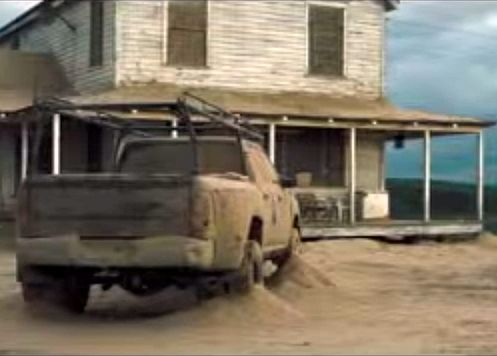
Hollywood embraced global warming as a theme only recently. Young Ones, released on October 9, posits a future with little fresh water, and Into the Storm, which opened August 8, shows a small town devastated by a series of climate-driven super-tornadoes. Science fiction writers, however, have imagined a climate-ravaged world since the early 1960s. One of the most prescient early books is George Turner’s The Sea and Summer, published in 1987. His vision of an Australia flooded by rising seas is echoed by Paolo Bacigalupi’s Bangkok in his 2010 novel The Windup Girl. The Thai capital is kept alive by dikes and gates reminiscent of the Thames Barrier in London.
Writers hold their noses when talking about genre. Terms such as “science fiction,” “paranormal romance,” even “literary,” appeal primarily to business types downstream of the artist, that is, agents, publishers, and booksellers. The words and phrases help them design a sales pitch or tell them where to put the book in a catalog or on a shelf. Authors pursuing their craft over years understand that all fiction covers the same kinds of human relationships. Only the context changes: “Historical fiction” takes place in the past; “Scifi” takes place in the future; “Paranormal romance” happens in…well, I haven’t figured that one out yet.
The awkward label “cli-fi,” reportedly coined by PR maven and climate change activist Dan Bloom in 2008, adds an extra layer to the discussion because of the extreme emotions that permeate environmental activism. The debaters fall into three groups: The ones who laugh, the ones who cry, and the rest who are confused. I’m in the first camp. I see “cli-fi” and “climate fiction” as shorthand to get attention from a media afflicted by shiny ball syndrome.
Others argue these terms, and extended ideas, such as Mr. Bloom’s promotion of an award called a “cliffie,” minimize artistic endeavors meant to raise awareness of a major environmental issue. “We don’t have the resource or energy to popularize a stupid meme or entertain crazy musings,” one commenter wrote in a Google+ post. The latter attitude is a perfect example of a huge problem with climate change activism: the total lack of a sense of humor. The final category, “confused,” includes 99.99999 percent of humanity, if they care at all.
Terms debated by the literati are unimportant. What’s interesting is that directors and writers are responding to a coalescing anxiety about the future of the planet. They are examining how humans might cope with the coming changes, which science says are all but inevitable at this point. “Climate fiction” might help Joe and Jane Sixpack realize that their lives are transforming when they can see it on the big screen.
What you do think? Should we take “climate fiction” seriously?

Tell Me What You Think!